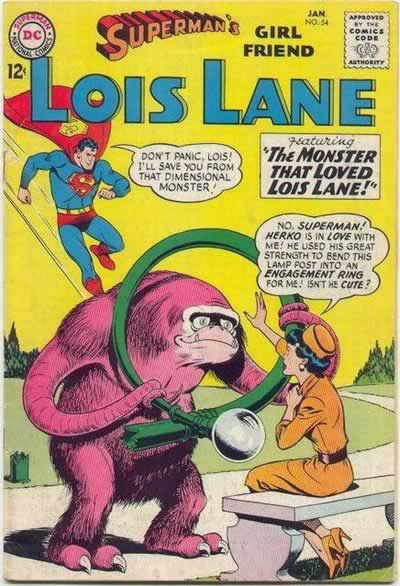For Worse or For Worse
The much-despised dork
I don’t read “For Better or For Worse” — pretty much for the same reasons I don’t read “Judge Parker” or “Mary Worth”: because soap opera comic strips make me want to hit people with sticks. But Lynn Johnston’s “For Better or For Worse (let’s abbreviate that to FBOFW, okay?) has always irritated me more, because it tries to be a gag strip and a drama strip at the same time, and because it’s badly written, and not very well drawn, and because it drowns everything in cheap, syrupy sentiment.
In the overall scheme of things, FBOFW is far from the most important or interesting comic strip. It ain’t in the top 50. It ain’t in the top 100. “Snuffy Smith” is a better comic than FBOFW. “Marmaduke” is better. “Nancy” is better. It certainly doesn’t hold up when compared to the giants like “Peanuts,” “Calvin & Hobbes,” “Pogo,” “Little Nemo,” or “Krazy Kat.”
Gaaah, I don’t like “For Better or For Worse” a bit, and that’s all there is to it.
So reading that other people — even fans of the strip — are irritated with both the direction FBOFW is taking as it heads toward the end of the strip and with one of the character’s apparently impossibly-irritating love interest Anthony? Well, that’s music to my FBOFW-hating ears.
In retrospect, Liz’s story arc is clear. Many readers — particularly, no doubt, young readers of Liz’s age like myself — thought that Liz’s enthusiasm for her teaching career and exciting life in Mtigwaki represented a young woman’s development into an independent person capable of fulfilling her dreams and making her way in the wide world. To Johnston, however, Liz’s young-adult life — the fulfilling work, the exploration of new places and cultures, the sexy boyfriends — has been nothing more than playtime. She’s had her fun and sown her wild oats, and now it’s time for her to grow up and adopt a “real†adult life: a life as much like her parents’ as possible, complete with prefab house, prefab toddler, and a husband picked out by Mom and Dad. For years, characters have periodically commented on how much Anthony resembles Liz’s father, with the implication that this makes him perfect for her. By reuniting with him, Liz will accept her destiny as a pale copy of her mother, keeping house right down the street from her watchful parents. The path to adulthood doesn’t lead to independence and a vast horizon of possibility; it leads right back to the childhood doorstep.
Makes more sense than Liz and Anthony
This is why I, and so many other readers, hate Anthony. His joyless, colorless, sexless presence hovers over us like a sulky specter, the Ghost of Dreams Deferred, reminding us of the deadly dull version of adulthood we might one day awaken to find ourselves trapped within. Even in the funny pages, traditionally the one haven of childlike fun in the gray, grown-up world of the daily newspaper, we can’t hide from the clammy fate that Anthony represents. So we hate him, in a deep, primal way.
Really, the entire essay makes me BWA-HA-HAA like nobody’s business.
Here’s the big problem — FBOFW has been the beneficiary of a couple decades’ worth of fans insisting that the strip’s real-time storylines make it “more realistic” and “more involving” than other comic strips. And now, Johnston has pulled the rug out from under all those fans — in real life, most people don’t have the option of living next door to their parents, even if they wanted to, and most people don’t find their True Loves in high school. (And who’d want to? High school blows.)
But Johnston has decided that she wants her strip to end with a completely moronic fantasy, and she’s willing to honk off her fans to do it. That’s wonderful. More BWA-HA-HA for me.


